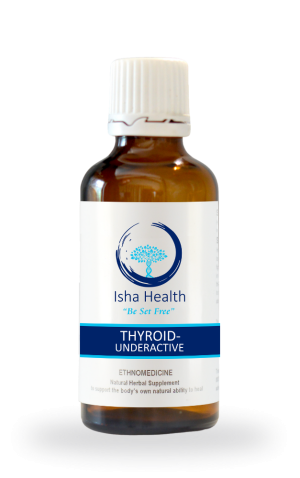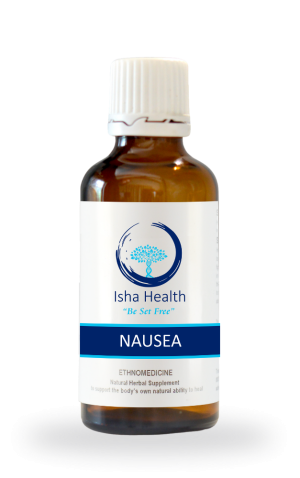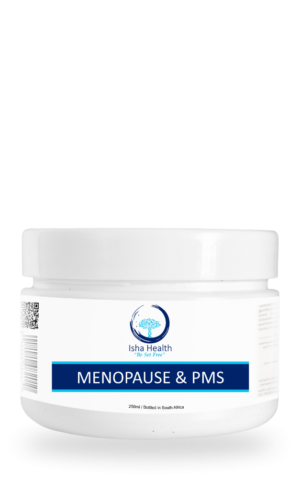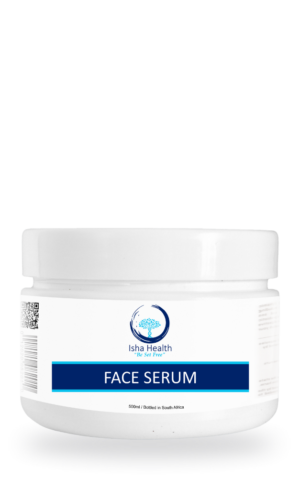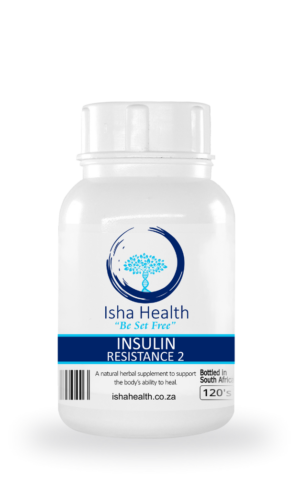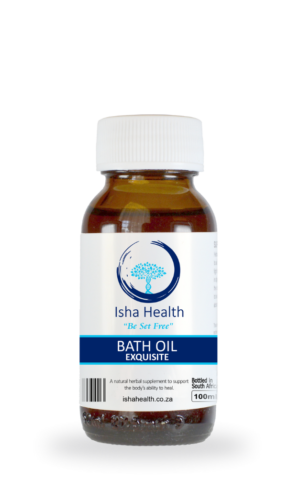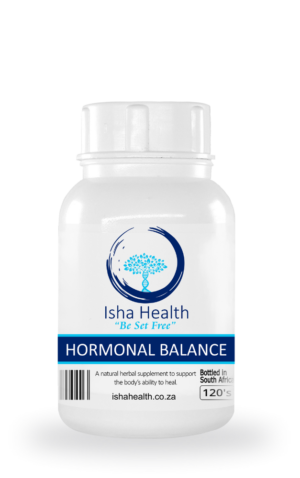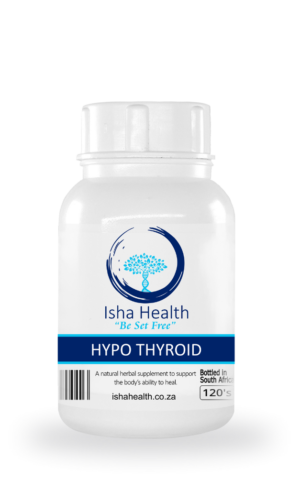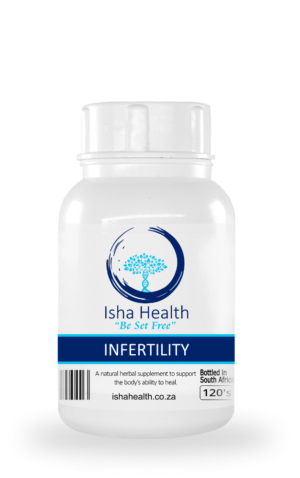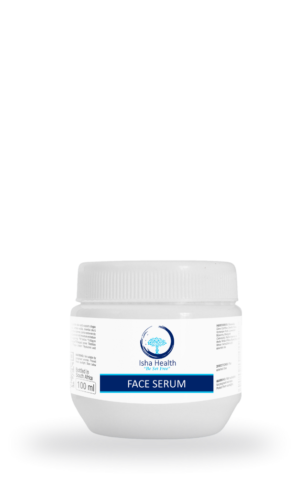
Krypt-P (Kryptopyrruloria)
- 3-5 working days
- Hand-Made
- Manufactured in South Africa
- 100% Natural
- 100% Herbal products
- 100% Manufacturing Guarantee
Description
Directions for Use
Ingredients
Warning
Technical Information
Our Herbal Krypt-P Supplement is specifically formulated to support individuals dealing with Kryptopyrroluria (KPU), addressing this under-recognized condition. With a potential incidence as high as 80% in autism and 40-70% in learning difficulties, ADHD, Bipolar disorder, and depression, our supplement aims to provide comprehensive support for those facing these challenges.
Kryptopyrroluria (KPU) is a metabolic condition characterized by an abnormal production and excretion of a substance called pyrrole. These excess pyrroles can bind to essential nutrients like zinc, vitamin B6, and arachidonic acid, leading to their increased excretion from the body. This can result in nutritional deficiencies and contribute to a range of symptoms, including cognitive and emotional issues, making it a condition of interest in the context of mental health disorders such as autism, ADHD, Bipolar disorder, and depression.
2-4 x capsules 3x daily
20 minutes before meals.
Children over 6-12 years:
1x Capsule daily
Children over 12-16 years:
1x Capsule 2x daily according to age.
Bilberry
Borage
Choline
Evening Primrose
Folic acid
GABA
L-Lysine
Magnesium
Moringa
N-Acetyl-Cysteine
Pumpkin Seed
Slippery Elm
Vit B3
Vit B6- Pyridoxine
Vit C Palmitate
Zinc Picolinate
Other African Herbs
Ingredients Traditionally used for this supplement:
Bilberry: Rich in anthocyanosides, this antioxidant fortifies connective tissues, contributes to the Blood/Brain barrier, inhibits bacterial movement, and promotes collagen production.
Borage: Boasting a 20% GLA concentration, it addresses GLA deficiency, aiding Zinc absorption, supporting physiological function, and alleviating associated symptoms.
Evening Primrose: With 8-10% GLA, this source of essential fatty acids is vital for skin, hair, bone, and brain health, augmenting therapeutic impact, and supporting cognitive function in managing KPU-related disorders.
Folic Acid: Playing a critical role in neural development, Folic Acid is pertinent for individuals dealing with KPU, aligning with broader neuroprotective functions.
GABA: A key player in neurotransmission regulation, GABA significantly contributes to overall brain function, providing inhibitory neurotransmitter action valuable for maintaining neural equilibrium in KPU.
L-Lysine: Supplementation addresses potential deficiencies limiting Vit B6 activity, benefiting cognitive function and alleviating symptoms.
Marshmallow Root: Supports mucosal health, enhancing mucus linings and gut linings, beneficial for digestive disorders seen in conjunction with KPU.
Magnesium: Plays a dual role, countering depletion caused by elevated Vitamin B6 levels, and acts as a muscle relaxant, alleviating symptoms in KPU-related disorders.
Moringa: A nutritional powerhouse providing a comprehensive profile for individuals with KPU, rich in essential nutrients addressing multifaceted nutritional requirements.
N-Acetyl-Cysteine: Recognized for mental health effectiveness, N-Acetyl-Cysteine lowers homocysteine levels, critical for individuals dealing with KPU, aligning with the body’s natural processes.
Pumpkin Seed: With its rich mineral profile and antioxidant content, addresses inflammation, providing comprehensive nutritional support for KPU.
Slippery Elm: Supports mucosal health, crucial for individuals dealing with conditions like irritable bowel syndrome and leaky gut often seen in conjunction with KPU.
Vitamin B3 (Niacin): Accelerates Pyrroluria recovery, supporting serotonin production and neurotransmitter balance, beneficial in acute schizophrenia management, aligning with neuroprotective aspects.
Vitamin C Palmitate: Accumulates in the central nervous system, safeguards against oxidative damage, and adds a nuanced layer of neuroprotection, especially pertinent in the context of KPU.
Vitamin B6: Assumes paramount importance in the management of KPU, addressing multi-system impact, contributing to restoring balance between Glutamate and GABA.
Zinc Picolinate: Essential for enzyme functionality, DNA stabilization, and immune support, crucial in comprehensive management of KPU, addressing associated symptoms and supporting overall well-being.
Not suitable for pregnant or breastfeeding woman.
Protect from sunlight.
Store below 25°c.
What is Kryptopyrroluria?
Kryptopyrroluria (KPU), also known as hemopyrrollactamuria, is a metabolic disorder characterized by the overproduction and excretion of a chemical compound called hydroxyhemopyrrolin-2-one (HPL). This substance, also known as “pyrrole,” has a tendency to bind with essential nutrients like zinc, vitamin B6, and arachidonic acid.
Individuals with KPU often excrete higher than normal levels of pyrroles in their urine. The excessive excretion of pyrroles leads to nutrient deficiencies, particularly in zinc and vitamin B6, as these vital nutrients are bound to the pyrroles and eliminated from the body.
Zinc and vitamin B6 are essential for various physiological processes, including neurotransmitter function and overall cognitive health. Deficiencies in these nutrients can contribute to a range of symptoms, including cognitive impairment, emotional instability, and behavioural issues.
KPU is believed to have associations with various mental health conditions, including autism, ADHD, bipolar disorder, and depression. Identifying and addressing KPU involves managing the underlying metabolic dysfunction and restoring nutrient balance through targeted supplementation and dietary interventions.
It’s important to note that while some practitioners support the concept of KPU and its impact on mental health, the medical community at large may have varying opinions, and research on this condition is ongoing. Individuals suspecting KPU should consult with qualified healthcare professionals for appropriate diagnosis and guidance on potential interventions.
What causes Kryptopyrroluria?
The exact cause of Kryptopyrroluria (KPU) is not well-established, and it remains a topic of ongoing research. However, some factors are considered to be associated with the development of this condition:
- Genetics: There is evidence to suggest a genetic component to KPU. It may run in families, indicating a potential hereditary link.
- Stress: Stress, whether physical or emotional, is believed to trigger or exacerbate KPU. The body’s response to stress may contribute to increased production of pyrroles.
- Environmental Factors: Exposure to certain environmental stressors, toxins, or infections may play a role in the development of KPU. These factors could potentially contribute to the overproduction of pyrroles.
- Nutritional Deficiencies: KPU is characterized by the binding of essential nutrients like zinc and vitamin B6 to pyrroles, leading to their excretion. A deficiency in these nutrients may contribute to the condition.
- Hormonal Changes: Hormonal fluctuations, especially during puberty or periods of hormonal imbalance, may be linked to the onset or worsening of KPU symptoms.
The path of Kryptopyrroles through the body:
Kryptopyrroles, specifically hydroxyhemopyrrolin-2-one (HPL), are formed during the breakdown of hemoglobin in the body. Hemoglobin is the protein in red blood cells responsible for transporting oxygen. The production of HPL occurs in various tissues, and its levels can be influenced by oxidative stress and inflammation.
Once formed, HPL binds strongly to essential nutrients, particularly zinc and vitamin B6. This binding creates stable complexes that are excreted in the urine. The excessive excretion of these nutrient complexes leads to depletion within the body, affecting critical physiological functions.
The path of kryptopyrroles through the body involves their synthesis in tissues where hemoglobin is broken down, followed by the binding of these metabolites to essential nutrients. The bound complexes are then eliminated through urine. This process results in the loss of crucial nutrients, particularly zinc and vitamin B6, contributing to the biochemical imbalances associated with Kryptopyrroluria (KPU).
Kryptopyrroluria (KPU) is associated with various diseases and disorders:
- Alzheimer’s Disease and Cognitive Decline: KPU’s impact on cognitive function extends to disorders like Alzheimer’s disease and age-related cognitive decline, revealing broader implications of metabolic disturbances on brain health.
- Anxiety Disorders: While research is ongoing, indications suggest that KPU may play a role in anxiety disorders, highlighting the complex interplay between metabolic irregularities and mental well-being.
- Attention-Deficit/Hyperactivity Disorder (ADHD): Individuals with ADHD often exhibit associations with KPU, highlighting the impact of metabolic imbalances on cognitive function and attention regulation.
- Autism Spectrum Disorder (ASD): Incidence of KPU is estimated to be as high as 80% in individuals with autism, underscoring its potential role in neurodevelopmental conditions.
- Bipolar Disorder: Observations suggest a link between KPU and bipolar disorder, emphasizing the need for exploring metabolic considerations in mood disorders.
- Chronic Fatigue Syndrome (CFS): Individuals with chronic fatigue syndrome may exhibit KPU, indicating a potential link between metabolic irregularities and the manifestation of chronic fatigue symptoms.
- Depression: KPU is associated with depression, pointing to its potential contribution to mental health disorders and the importance of addressing metabolic factors.
- Epilepsy: Some studies propose a connection between KPU and epilepsy, emphasizing the need for comprehensive assessments in individuals with seizure disorders to address potential metabolic influences.
- Learning Difficulties: KPU is prevalent in approximately 40% to 70% of people with learning difficulties, indicating a connection between metabolic factors and challenges in learning.
- Schizophrenia: Studies indicate a potential correlation between KPU and schizophrenia, underscoring the significance of investigating metabolic aspects in severe mental health conditions.
The Symptoms of Kryptopyrroluria:
Kryptopyrroluria (KPU) is associated with a diverse range of symptoms, encompassing:
- Appetite and Dietary Preferences: Disinclination towards breakfast, an aversion to meat consumption, and other dietary peculiarities may be observed.
- Chronic Fatigue: Persistent fatigue and low energy levels are hallmark symptoms of KPU.
- Cognitive Impairments: KPU may contribute to difficulties with concentration, memory, and overall cognitive function.
- Digestive Discomfort: Common symptoms involve digestive issues such as irritable bowel syndrome (IBS), leaky gut, and a dislike for meat consumption.
- Hormonal Imbalances: KPU can influence hormonal function, leading to imbalances in various aspects of the endocrine system.
- Joint Discomfort: Pain and weakness in muscles and joints can be prevalent symptoms.
- Mood Disturbances: Emotional irregularities, mood swings, and emotional lability are frequently observed in those with KPU.
- Muscle Discomfort: Pain and weakness in muscles can be prevalent symptoms.
- Neurological Manifestations: Individuals with KPU may exhibit neurological symptoms like poor stress tolerance, nervousness, and heightened sensitivity to light and sound.
- Resistance to Breakfast: Individuals with KPU might exhibit a reluctance or aversion to consuming breakfast.
- Skin Abnormalities: Symptoms may include pale skin, sensitivity to sunlight, and the development of stretch marks.
- Sleep Irregularities: Sleep disorders, ranging from insomnia to disrupted sleep patterns, may be associated with KPU.
- Vitamin and Mineral Deficiencies: KPU is linked to deficiencies in essential nutrients, particularly vitamin B6, zinc, and manganese.
It’s crucial to recognize that symptoms can vary widely among individuals, and a comprehensive evaluation by a healthcare professional is necessary for accurate diagnosis and tailored management.
Is Kryptopyrroluria linked to Autism?
Kryptopyrroluria (KPU) has been linked to autism. The incidence of KPU is estimated to be as high as 80% in individuals with Autism Spectrum Disorder (ASD). This suggests a significant association between KPU and autism, emphasizing the potential impact of metabolic factors on neurodevelopmental conditions. It’s important to note that the relationship between KPU and autism is a subject of ongoing research, and further studies are needed to deepen our understanding of this connection.
Overlapping symptoms between Lyme’s Disease and Kryptopyrroluria:
Kryptopyrroluria (KPU) and Lyme’s Disease can present with overlapping symptoms, and it’s essential to differentiate between the two conditions for accurate diagnosis and treatment. However, both conditions can manifest with symptoms that affect various systems in the body. Here are some shared and distinct symptoms:
Shared Symptoms:
- Fatigue: Both KPU and Lyme’s Disease can cause fatigue and a sense of overall weakness.
- Joint Pain: Joint pain and muscle aches are symptoms reported in both conditions.
- Digestive Issues: Gastrointestinal symptoms, such as nausea or abdominal discomfort, may be present in both KPU and Lyme’s Disease.
Distinct Symptoms – Kryptopyrroluria:
- Mental Health Symptoms: KPU is often associated with mental health conditions, including anxiety, depression, and mood disorders.
- Sensitivity to Light and Sound: Individuals with KPU may have heightened sensitivity to light and sound.
- Poor Stress Tolerance: Stress may exacerbate symptoms in individuals with KPU.
Distinct Symptoms – Lyme’s Disease:
- Erythema Migrans (Bull’s-Eye Rash): Lyme’s Disease is often characterized by a distinctive bull’s-eye rash, although not everyone with Lyme’s Disease develops this rash.
- Neurological Symptoms: Lyme’s Disease can affect the nervous system, leading to symptoms such as headaches, dizziness, and cognitive difficulties.
- Heart Involvement: In some cases, Lyme’s Disease can affect the heart, causing symptoms like palpitations and chest pain.
It’s crucial to consult with healthcare professionals for a comprehensive evaluation if someone is experiencing symptoms associated with either condition. Laboratory tests and a thorough medical history can help in reaching an accurate diagnosis and guiding appropriate treatment strategies.
Which vitamins and minerals are depleted by kryptopyrroles and why?
Kryptopyrroluria (KPU) is associated with the excessive excretion of a compound called pyrroles, which can bind to certain essential nutrients, leading to their increased excretion in the urine. The specific nutrients affected include:
- Zinc: Pyrroles can bind to zinc, resulting in increased urinary excretion of zinc. Zinc is crucial for various physiological processes, including immune function, wound healing, and neurotransmitter synthesis.
- Vitamin B6 (Pyridoxine): Pyrroles can also bind to vitamin B6, leading to its increased loss in the urine. Vitamin B6 is involved in numerous metabolic processes, including neurotransmitter synthesis, amino acid metabolism, and hemoglobin production.
- Biotin: Biotin, a B-vitamin, may also be depleted by the binding action of pyrroles. Biotin is essential for energy metabolism and the maintenance of healthy skin, hair, and nails.
- Manganese: Pyrroles can affect manganese levels, leading to increased urinary excretion. Manganese is a trace element with roles in bone formation, enzyme activation, and antioxidant defense.
- Arachidonic Acid: Arachidonic acid, an omega-6 fatty acid, may be reduced due to the impact of KPU on Gamma-Linolenic Acid (GLA) metabolism.
The exact mechanisms by which pyrroles interfere with these nutrients are not fully understood, and research on KPU is ongoing. It’s important to note that the term “kryptopyrroluria” is not universally recognized within mainstream medicine, and some aspects of the condition remain controversial.
Individuals suspected of having KPU may undergo specific laboratory tests to assess urinary pyrrole levels and the associated depletion of essential nutrients. Management often involves supplementation with the affected nutrients, along with a comprehensive approach to address underlying metabolic imbalances.
Ingredients which are traditionally used for this disorder
Technical info:
Bilberry: Bilberry, containing anthocyanosides, functions as a robust antioxidant with a focus on connective tissue health. In Lyme’s Disease, it reinforces the Blood/Brain barrier, inhibits flagella movement in Lyme bacteria, and promotes collagen production. The antimicrobial properties of Bilberry further contribute to germ elimination.
Borage: Borage, boasting a 20% Gamma Linoleic Acid (GLA) concentration, is instrumental in addressing the GLA deficiency often associated with KPU. This is of particular importance as GLA facilitates enhanced Zinc absorption, thereby supporting optimal physiological function and mitigating symptoms associated with KPU.
Evening Primrose: Evening Primrose, rich in an 8-10% GLA concentration, serves as a crucial source of essential fatty acids. Beyond the traditional benefits associated with skin and hair health, its role in bone health and brain function is essential for individuals dealing with KPU. The conversion of GLA to DGLA, facilitated by Vit C, B3 & B6, augments its therapeutic impact.
Folic Acid: Folic Acid assumes a critical role in neural development, making it a pertinent inclusion for individuals grappling with KPU. Its involvement in addressing the pathology associated with KPU aligns with its broader neuroprotective functions.
GABA: Gamma-Aminobutyric Acid (GABA) emerges as a key player in neurotransmission regulation, contributing significantly to overall brain function. In the context of KPU, its inhibitory neurotransmitter action is valuable for maintaining neural equilibrium.
L-Lysine: L-Lysine supplementation targets deficiencies that could otherwise limit the activity of Vit B6, a factor particularly relevant in KPU. Individuals displaying signs such as poor dream recall, muscle tone loss, and weight loss may benefit from L-Lysine supplementation, especially those with a predisposition to Lysine deficiency.
Marshmallow Root: Marshmallow Root’s contribution lies in supporting mucosal health, enhancing mucus linings and gut linings. Beneficial in conditions like irritable bowel syndrome and leaky gut, addressing digestive disorders.
Magnesium: Magnesium, a vital mineral, plays a dual role in countering depletion caused by elevated Vitamin B6 levels and serving as a muscle relaxant. Its relevance in addressing symptoms like painful neck aches, insomnia, constipation, and nerve twitching complements the broader strategy in managing KPU. The additional magnesium content in Moringa further enhances its efficacy.
Moringa: Moringa, a nutritional powerhouse with over 90 essential nutrients, provides a comprehensive profile for individuals with KPU. Rich in Vitamin C, calcium, protein, potassium, iron, and other vital elements, Moringa becomes a valuable asset in addressing the multifaceted nutritional requirements associated with KPU.
N-Acetyl-Cysteine: N-Acetyl-Cysteine (NAC), recognized for its effectiveness in mental health, lowers homocysteine levels—a critical consideration for individuals with KPU. Its broader impact on reducing lead poisoning aligns with the overall goal of mitigating environmental stressors contributing to KPU.
Pumpkin Seed: Pumpkin Seed, with its rich mineral profile and antioxidant content, addresses inflammation—a common concern in KPU. Its inclusion, with Calcium, Vit K, Phosphorus, Manganese, Magnesium, Iron, and Zinc, provides comprehensive nutritional support.
Slippery Elm: Slippery Elm’s role in supporting mucosal health, particularly in building up mucus linings and gut linings, is crucial for individuals dealing with conditions like irritable bowel syndrome and leaky gut often seen in conjunction with KPU.
Vitamin B3 (Niacin): Niacin accelerates Pyrroluria recovery, supporting serotonin production and neurotransmitter balance. Its flushing action, while enhancing oxygen supply to the brain, proves beneficial in acute schizophrenia. The collaborative effect with Vit B12 and Folic Acid in preventing abnormal adrenochrome production aligns with the neuroprotective aspect of managing KPU.
Vitamin C Palmitate: Vitamin C Palmitate, accumulating in the central nervous system, safeguards against oxidative damage to brain lipids and proteins. Its role in converting dopamine to norepinephrine adds a nuanced layer of neuroprotection, especially pertinent in the context of KPU.
Vitamin B6: Vitamin B6, beyond its traditional roles, assumes paramount importance in the management of KPU. Its role in haem synthesis, energy production, amino acid metabolism, and neurotransmitter synthesis addresses the multi-system impact of KPU. Notably, its contribution to restoring the balance between Glutamate and GABA becomes a focal point in mitigating the pathophysiology of KPU.
Zinc Picolinate: Zinc Picolinate, essential for enzyme functionality, DNA stabilization, and immune system support, plays a crucial role in individuals with KPU. Deficiency, often associated with depression, lethargy, poor wound healing, concentration and memory problems, anorexia, leaky gut, and digestive disorders, underscores its relevance in the comprehensive management of KPU.

